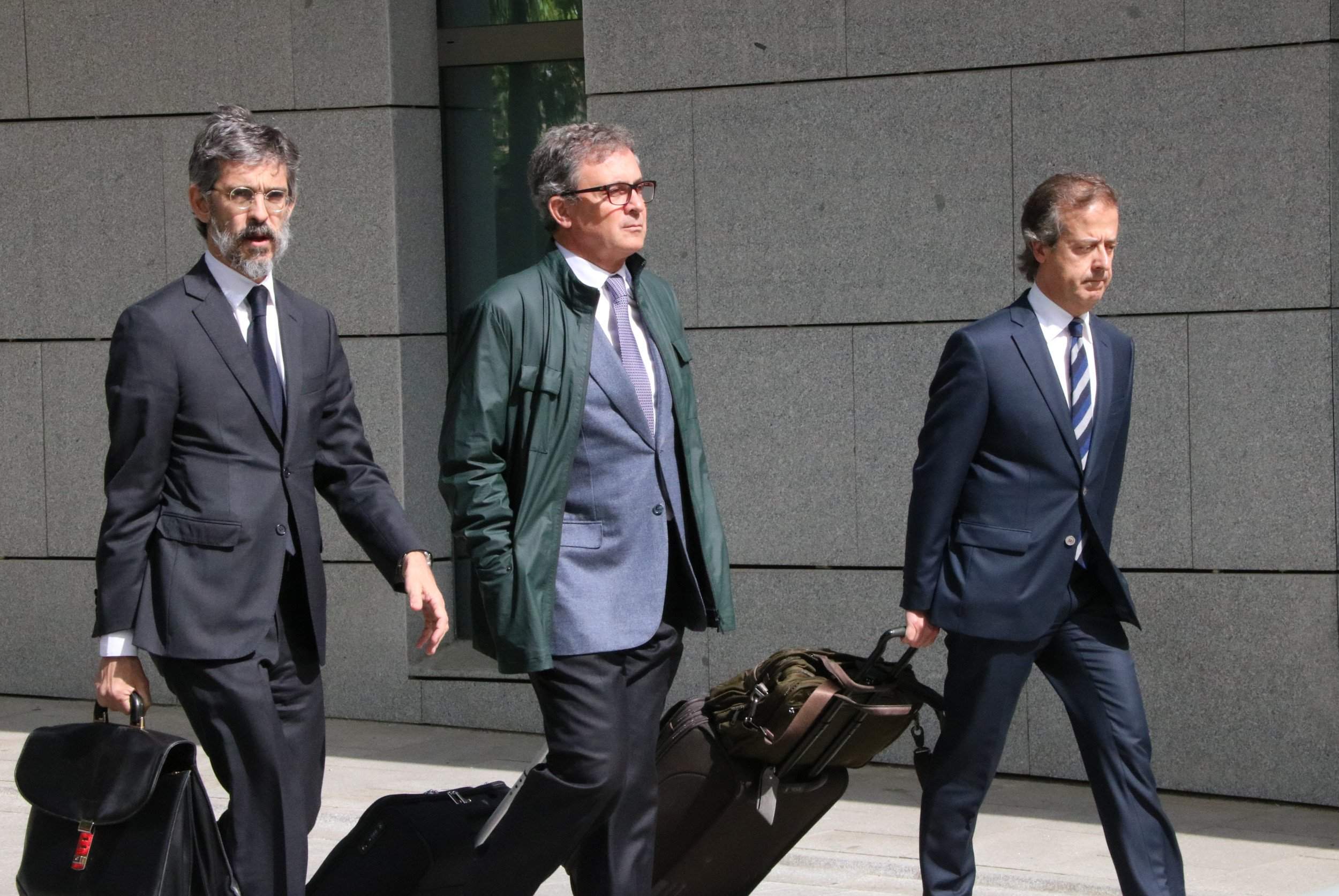Rejected. The criminal chamber of Spain's National Audience has thrown out an appeal presented by Jordi Pujol Ferrusola, son of the former Catalan president, in which he asked to identify himself as a party that suffered damages in the Tandem case centred on retired police commissioner José Manuel Villarejos. The motive for the appeal: to set in motion a court investigation of the criminal activities carried out in Andorra against him and his family by the Spanish interior ministry's illegal patriotic police, as well as of commissioner Villarejo (himself part of the patriotic brigade) and his company Grup Cenyt. The Pujol Ferrusola family maintains that in this case there is evidence that the police, on behalf of the Spanish government, forced the managers of Banca Privada d'Andorra (BPA) to illegally give them information about their accounts, as recently documented by ElNacional.cat in our investigative series on the Secret Papers on Operation Catalonia.
In a resolution communicated this Wednesday, a chamber of the National Audience endorses the decision made earlier by judge Manuel García-Castellón, in which he rejected the opening of a private prosecution by the oldest son of president Jordi Pujol in the case, noting that the allegations included were already being investigated by a court in Andorra, through a complaint filed against the then Spanish prime minister Mariano Rajoy and his ministers Cristóbal Montoro and Jorge Fernández Díaz, in addition to the police leadership. Judge García-Castellón had not taken any action on the Pujol family's appeal for more than two years until he resolved it negatively in January this year. However, in the resolution the judge admitted that there are four informational memos, sent by Villarejo to his superiors, in which the investigations of the Pujols are discussed.
The complaint and the evidence
The chamber of the National Audience which ruled on the appeal also asserts that entry into the proceedings to investigate actions committed in Andorra, as sought by Pujol Ferrusola, "had to be raised through the filing of a complaint", a procedural issue that - it states - "cannot be changed at this time." In other words, the court urges the Pujol Ferrusola family to file a new complaint against the patriotic police if they want anything to be investigated.
In the appeal, the defence lawyers for the Pujols, Cristóbal Martell and Albert Carrillo, argue that the National Audience judge could not discard that they could be "victims and persons damaged" by the patriotic police, and that it was necessary that a complaint be lodged. The response of the court, presided over by judge Alfonso Guevara, is that the presentation of a complaint is certainly necessary, but it adds that lodging a complaint does not guarantee an investigation: first, there must be criminal evidence, narrowed down to certain people and where the events happened.
Rosell and Giró: complaints that led nowhere
Indeed, that lodging a complaint is no guarantee of anything has been shown as recently as this week in related cases. Two rulings - one affecting the former president of Barça, Sandro Rosell (which was made public yesterday), and another in response to former Catalan economy minister Jaume Giró, made complaints against figures in the People's Party government led by Mariano Rajoy, in relation to the damages they suffered from the Operation Catalonia dirty war. Both were dismissed, with the assertion that they were based on press reports and Villarejo's testimony, to which the judges give little standing because he is the main suspect in the Tandem case.
The former FC Barcelona president was, at the height of the independence process, imprisoned preventively for almost two years over alleged corruption actions, only for the case to be thrown out when it came to trial. Rosell asserts - and Villarejo admits - that the action was instrumentalized in order to prevent the Barça club from becoming a key element in the political struggle for Catalan independence.

